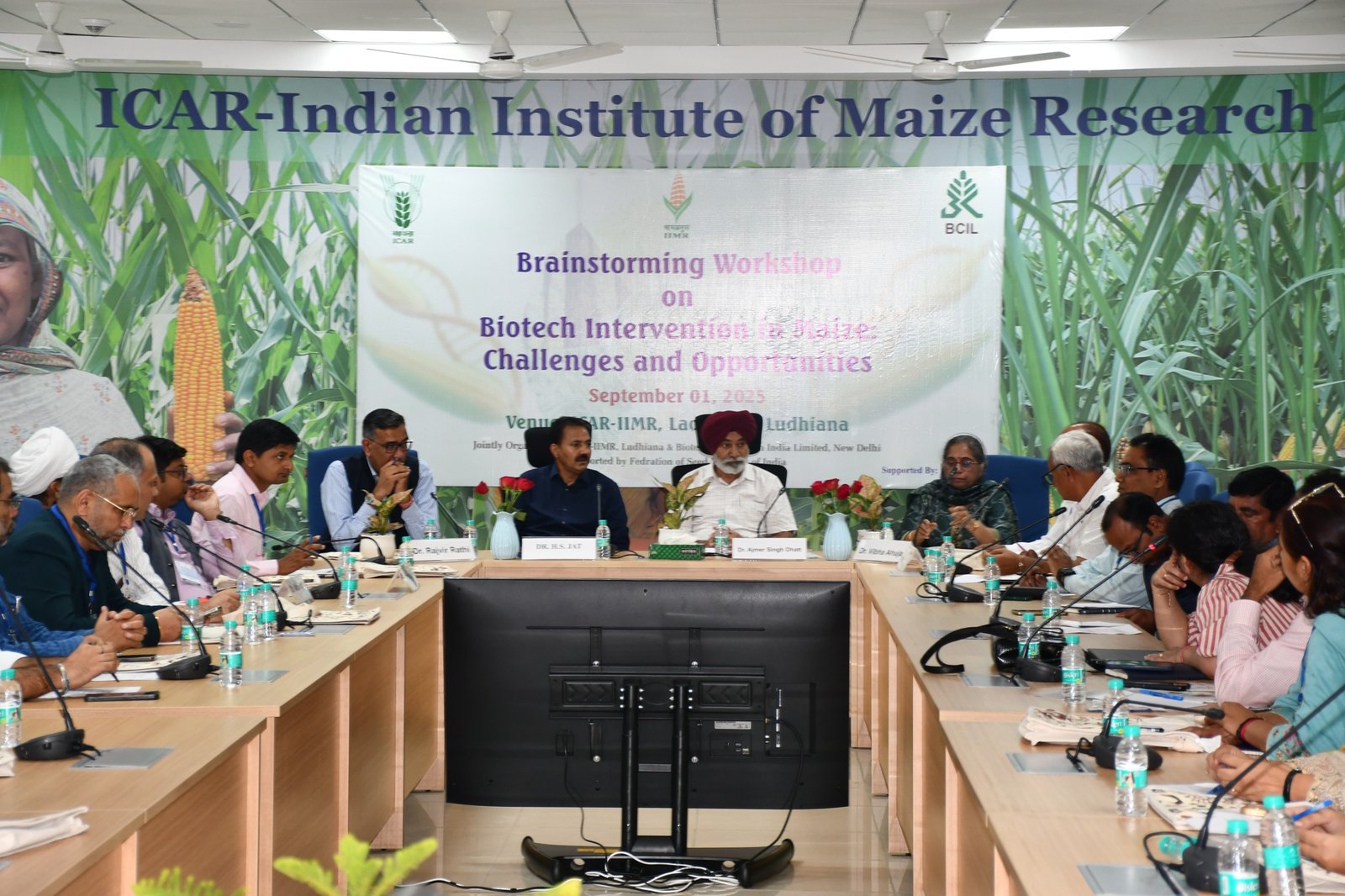Monday, 2 March 2026

Biotech workshop in Ludhiana highlights opportunities for maize innovation
With India’s maize sector facing increasing demand from food, feed, and fuel industries amid challenges of climate stress and yield gaps experts on Monday called for urgent adoption of biotechnology tools to boost yields, strengthen resilience, and ensure farmer prosperity in Punjab and rest of India.
The call came at a workshop on “Biotech Intervention in Maize: Challenges and Opportunities” organized at the ICAR–Indian Institute for Maize Research (IIMR), Ludhiana, by IIMR and the Biotech Consortium India Limited (BCIL), with support from the Federation of Seed Industry of India (FSII). The deliberation brought together scientists, policymakers, industry leaders, students, researchers and farmer representatives to discuss how genetic modification (GM) and genome editing (GEd) can shape the future of maize in India.
India is the world’s fifth-largest producer of maize, with more than 12 million hectares under cultivation and an annual output of nearly 42.3 million tonnes in 2024–25. Yet, average yields remain at around 3.5 tonnes per hectare, well below the global average of 5.8 tonnes. With demand projected to double by 2030, particularly from the poultry, feed, starch, and ethanol industries, participants underlined that technology-driven innovation is critical.
“Maize has the potential to become India’s next growth engine, not just for food but also as a driver of the livestock and biofuel economy. Adoption of modern biotechnology is extremely important, to compete with global productivity standards,” said Dr Ajmer Singh Dhatt, Director Research, Punjab Agricultural University (PAU), Ludhiana, calling on policymakers to create an enabling ecosystem for biotech maize.
Experts noted that climate variability, pest pressures, and stagnating yields have created new vulnerabilities for farmers. Rajvir Rathi, Vice Chairman, FSII, Director, Agricultural Affairs & Policy – IBSL & Lead, Traits Licensing, Bayer CropScience Ltd said “Technologies such as drought-tolerant, pest-resistant, and nutritionally enriched maize varieties, could stabilize incomes and production costs.”
Integration of biotechnological tools into conventional maize breeding programmes has the potential to enhance genetic gain and breeding efficiency, which may contribute to 10-15 per cent yield improvement. If applied appropriately, such approaches could provide benefits across the maize value chain, including farmers as well as feed and ethanol industries said Dr H. S. Jat, Director, ICAR-IIMR, Ludhiana.
The workshop also highlighted regulatory and perception-related challenges. While India has a strong base of public-sector research and private seed companies, regulatory delays have slowed progress in field trials and commercialization. Participants emphasized that farmer awareness and consumer trust will be crucial to adoption.
“India is at a crossroads. Demand for maize is growing faster than almost any other crop, and the country’s food, feed, and fuel security will depend on how quickly we bridge the productivity gap. We need science-based policies, faster approvals, and partnerships that deliver innovations directly to farmers’ fields,” remarked Dr Vibha Ahuja, Chief General Manager, Biotech Consortium India Limited, New Delhi.
Scientists and experts presented prospects of genetically engineered and gene edited maize and outlined the evolving regulatory frameworks for agri-biotechnology. The deliberation brought together voices from public institutions, private seed companies, feed industry stakeholders, fuel industry representatives and farmer groups.
Experts concluded with a strong consensus that India must accelerate the responsible adoption of biotechnology in maize to remain competitive globally. As India aspires to be a global agricultural leader, experts reinforced that biotechnology in maize is not an option, but a necessity for securing productivity, resilience, and prosperity in the decades ahead.